
Blotting paper is designed to soak up excess liquids such as ink and oils. Today, blotting paper is most notorious in the beauty and makeup world. Blotting paper is recommended as a healthy way to remove excess oil from your skin before applying makeup, or just to prevent shiny skin. Reading about the different ingredients may help you decide which type of paper is right for you, or even help you create blotting paper in your own home to save money.
Cotton
Cotton is known for it's soft and absorbent properties, and is one of the most common ingredients in blotting paper. Cotton is soft and gentle against the skin, while soaking up excess oil and leaving your face clean.
Rice
Rice is often used as a main ingredient for blotting paper. Rice paper is created using different parts of the rice plant, such as the pith and boughs. Rice paper is very porous and an excellent way to soak up excess oils.
Flax Seed
Flax seed is another common ingredient in blotting paper, because it is an absorbent material. Flax seed is all natural and is often recognized for it's healthy properties, such as its ability to help ward off illness and its high content of fiber, lignans, and omega-3 fatty acids.
Powder
Powder is an optional ingredient in blotting paper and a matter of preference. After you remove the blotting paper, the powder stays in place, continuing the oil absorption. Using powdered blotting paper allows you to remove the oils from your skin, while replacing some of the makeup powder that the blotting removed.
Related Articles
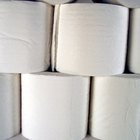
Toilet Paper vs. Bath Tissue

Types of Paper That Cannot Be Recycled

How do I Remove White Out Off of Skin?

How to Make Biodegradable Confetti

Surgi-Wax Directions

How to Remove Waxy Tailor's Chalk

Benefits of Apricot Scrub
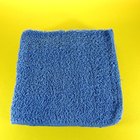
How to Use Microfiber Face Cloths

How to Remove Leftover Wax From the ...

Does Rice Taste Different Depending on ...
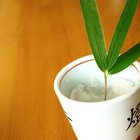
The History of Bamboo Fabric

Advantages of Paper Bags vs. Plastic ...

How to Remove Ink From Nylon

Burt's Bees Ingredient List

What Is Arnel Vintage Material Fabric?
How to Keep Flour for Long-Term Storage
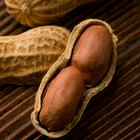
How to Prepare & Fry Raw Peanuts
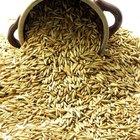
How to Store Oat Bran

How to Make Sweet Brown Rice

Cellophane vs. Polypropylene
Writer Bio
Anastasia Blackwood has been writing for publication since 2000. Her poetry first appeared in “Sidetracks” magazine in 2000. In 2010, Blackwood was published in "Southern Steel" magazine—a small publication for motorcycle enthusiasts. Blackwood is currently working towards her bachelor's degree in journalism at Central Connecticut State University.
Photo Credits
Jupiterimages/Photos.com/Getty Images